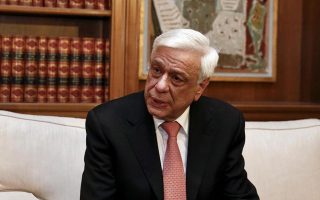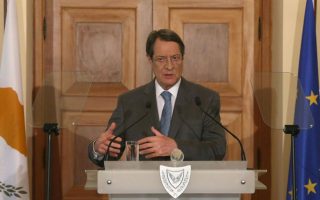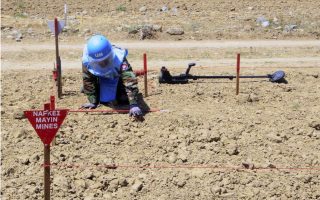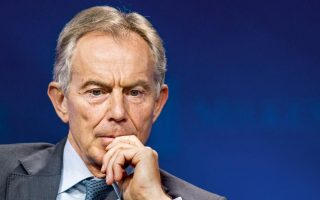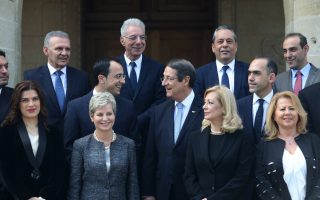2018 a critical year for Cyprus’s energy plans, says foreign minister
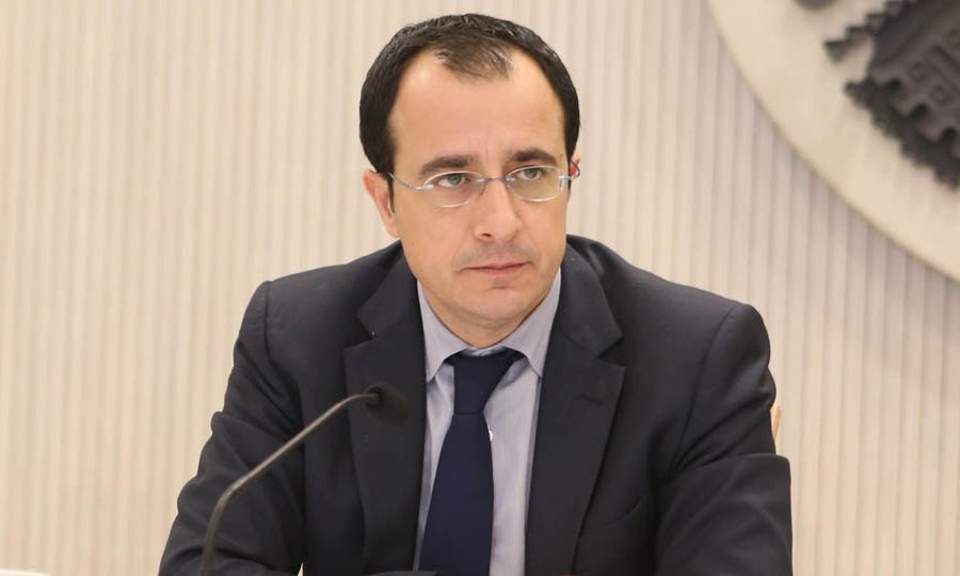
Cyprus is ramping up efforts to become a regional energy player, with 2018 seen as a critical year in deciding where it stands, the country’s foreign minister, Nikos Christodoulides, told Kathimerini in an interview.
“All I would like to say publicly is that 2018 will be a decisive year for the future of the Republic of Cyprus’s energy planning, its energy perspective, and that of the East Mediterranean in general,” he said.
Talking in his office at the Foreign Ministry – he knows the building well as he is a career diplomat – Christodoulides also revealed that despite the negative development of Turkish naval ships blocking an Eni drill rig from accessing Cyprus’s exclusive economic zone (EEZ) in February, Nicosia’s energy plans continue to “run smoothly.”
“We are in constant contact and consultation with all the companies involved but also with the countries in the region, as well as European Union member-states… we are in talks with Egypt and Israel, we have had related discussions with the governments of the USA, France and Italy and with the European Commission.”
The foreign minister, a career diplomat and government spokesman before taking office in March, said Cyprus can be a bridge between Eastern Mediterranean countries and the EU.
“It was a conscious effort, immediately after taking office, to visit all neighboring states to confirm and strengthen the view that Cyprus has excellent relations with neighboring states and can indeed be a bridge between the area and the European Union.”
Peace talks must resume
Christodoulides said that despite last year’s disappointment following the collapse of the Cyprus Conference in Crans-Montana, Switzerland, the peace process must continue. “Our position is crystal-clear. The current state of affairs cannot be part of the solution to the Cyprus problem.”
He admitted there was great disappointment primarily because there had been “promising” and significant progress for the first time and the stakes were high. “We have to make good use of all the things that were achieved for the first time, among them the fact that the substance of the Cyprus problem became clear and the issue of security and guarantees was discussed for the first time… and many other important issues.”
He added that the goal is for the negotiations to resume with the real prospect of a positive outcome.
But Christodoulides said there were additional issues under consideration, which need to be played out in real time, such as the upcoming Turkish elections.
“Due to the fact that Turkey will hold elections early, we will have to wait and see whether this will work in practice to support the efforts in a Cyprus settlement and also put an end to Turkey’s destabilizing behavior.”
Ankara’s stance
The minister also addressed some political analyses regarding the Turkish elections, saying they may have merit. “Ankara’s stance on the Cyprus problem but also its actions in the Eastern Mediterranean, the Aegean, Syria and elsewhere, might not have been unconnected with pre-election campaign interests for [Turkish President Recep Tayyip] Erdogan.”
He said a possible visit to Cyprus by a United Nations envoy could sound out the possibility of a new peace push. Such a visit could also help clarify Ankara’s real goals, Christodoulides said, citing Turkish officials’ own public statements of a “Plan B” in the aftermath of Crans-Montana.
Tripartite meeting in Nicosia
Ahead of a May 8 tripartite meeting in Nicosia between the leaders of Cyprus, Greece and Israel, Christodoulides emphasized the strong commitment to the Eastern Mediterranean (EastMed) natural gas pipeline, shown by all parties involved in the preliminary discussions, saying that energy will be high on the agenda of the summit.
But he also said the meeting is tasked with extending the strong relations between the three countries into other areas, such as at the levels of people and society. “The main theme of the meeting is ‘Building Bridges Between People.’”
He said that Cyprus President Nicos Anastasiades, Greek Prime Minister Alexis Tsipras and Israeli Pemier Benjamin Netanyahu have the desire to expand “the strong bonds and cooperation at the government level into areas that have to do with society in a more direct way, and create foundations for cooperation among the three countries’ peoples.”
The foreign minister also laid out another vision regarding tripartite meetings, expressing hope that such actions can help parties meet challenges and opportunities and even form common institutions.
“This last idea is clearly ambitious and is associated with the possibility of institutional ties between countries in the area. Such as the European Coal and Steel Community that brought European states closer together and formed the basis of the EU we have today. Why not the same for energy, security and defense and so much more [among Greece, Israel and Cyprus]?” he added.
